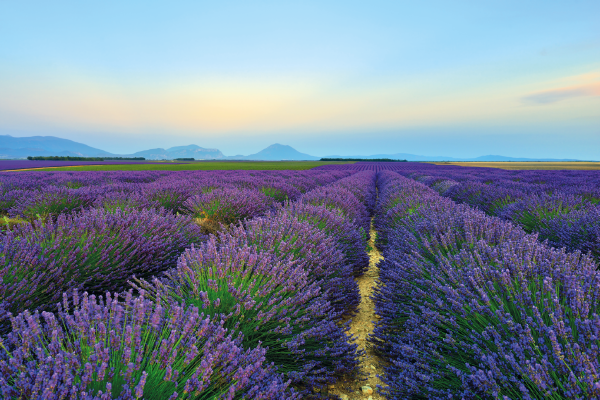

Hidcote Blue
Item no.: LA0202R/T- Purple-blue flowers above grey-green leaves
- Crop Time
- Spring: 10 - 12 months
- Height ∅
- 12 ″ / 30 cm
- Exposure
- Sun
- Seed Form
- Raw Seed, ApeX
- Heat Zone
- 12-7
- Hardiness Zone
- 5a-9a
- Best Uses
- Bedding, Landscape
Culture guide
Usage
Plants for border and open positions, ornamental leaf plant, aromatic plant, medicinal plant, pot and container plants, plants attractive for bees, extensive roof planting
Sow time
January-March for green pots, June-August for flowering in pots the following year
Sowing method
1-2 seeds per plug
Germination
Germinates in 14-20 days at 65-72 °F (18-22 °C). Light is required for germination. Treated ApeX seed increases germination percentages over that of raw seed.
Growing on
Transplant plugs after 9 weeks. Grow on at 55-65 °F (12-18 °C) in an alkaline medium. Vernalization is required for flower initiation. After vernalization, begin forcing plants at temperatures of 60-65 °F (15-18 °C) for 6-7 weeks under long days to promote flowering.
Media
Use a well-drained, growing perennial substrate with 0-15 % clay, 0-15 % parts (e.g. perlite, sand, bark), 1-2 kg/m³ complete balanced fertilizer, 0-2 kg/m³ slow release fertilizer (3-9 months), iron-chelate, micronutrients, pH: 5.8-7.0.
Temperature
Grow at 12-21 °C or outdoors. A forcing in spring with warm temperatures need high light intensity and decreases the cultivation time.
Fertilization
Moderate fertilization levels are required.
Stage I Starts with the radicle breaking through the testa. The roots are touching the medium. Ends with fully developed cotyledons.
Stage II Starts from fully developed cotyledons. Ends with the fully developed true leaf or true leaf pair.
Stage III Starts from the fully developed true leaf or true leaf pair and ends with 80% of the young plants being marketable.
Stage IV All young plants are ready for sale and in the process of being hardened off. This stage lasts about 7 days.
The cultural recommendations are based on results from trials conducted under Central European conditions. Different conditions in other parts of the world may lead to deviations in results achieved.